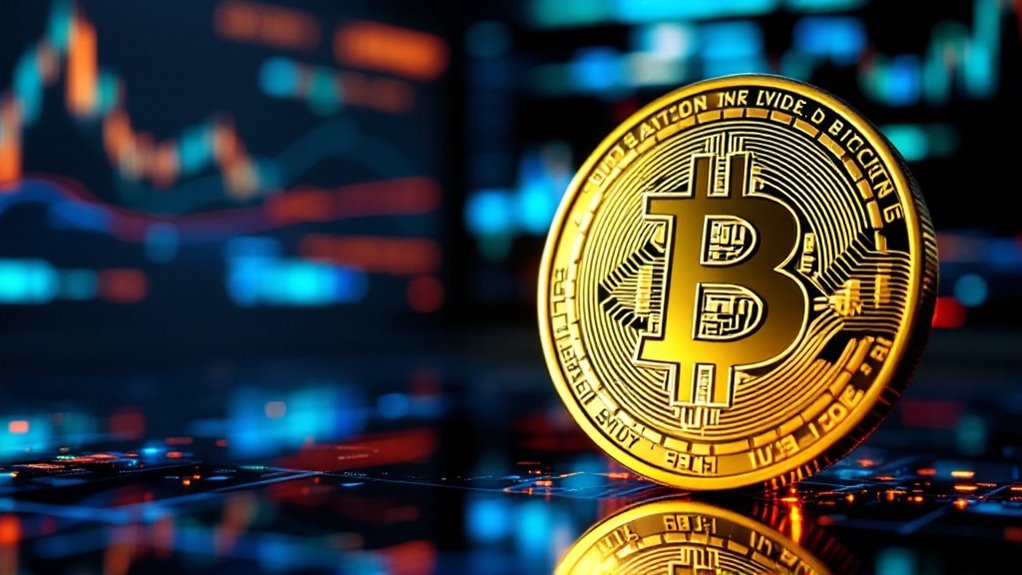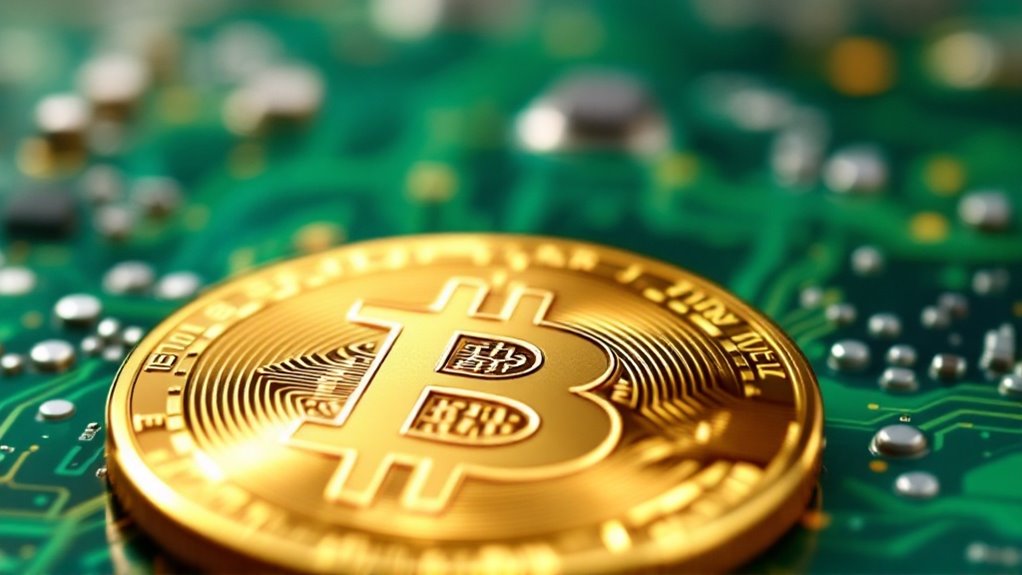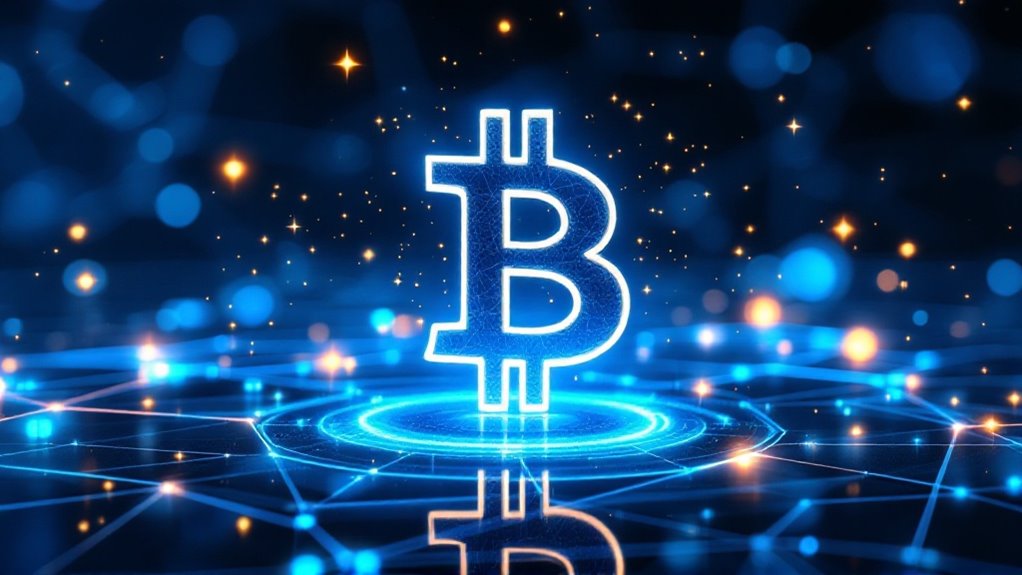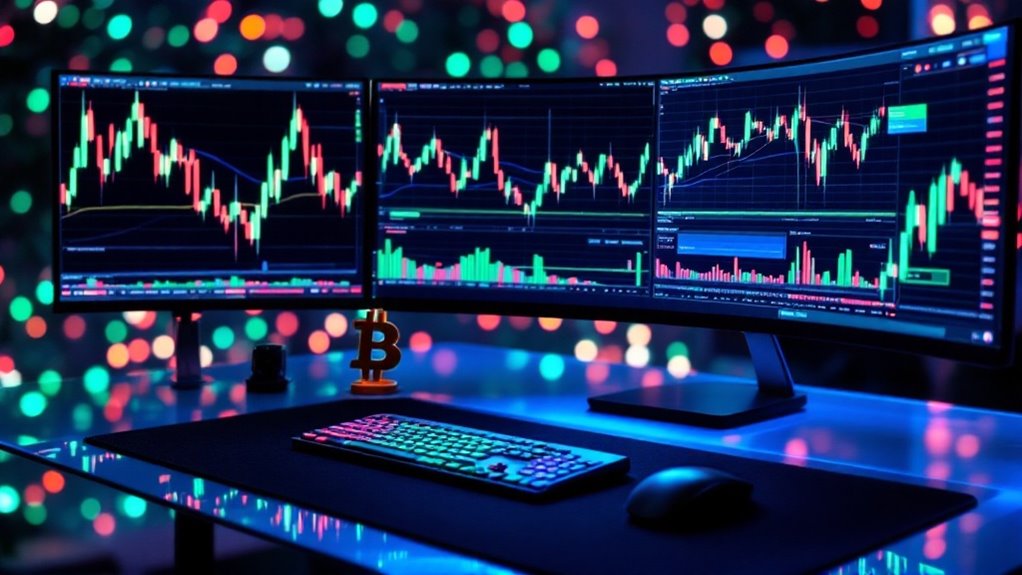Bitcoin is a groundbreaking digital currency that operates independently of banks and governments. Created in 2008 by the mysterious Satoshi Nakamoto, it functions like digital gold on a global computer network called the blockchain. Users can send Bitcoin worldwide instantly through secure digital wallets, while its limited supply of 21 million coins makes it potentially valuable over time. Despite price swings and energy concerns, Bitcoin's revolutionary technology continues reshaping our understanding of money and value.

Revolution has arrived in digital form. Bitcoin, introduced in 2008 by the mysterious Satoshi Nakamoto, has transformed our understanding of money itself. Like digital gold that you can't hold but can certainly own, this cryptocurrency operates on a vast network of computers, free from the controlling hands of banks and governments.
Think of Bitcoin as a global ledger written in permanent ink, where every transaction ever made is recorded with unflinching accuracy. This ledger, called the blockchain, is maintained by thousands of computers working together like a swarm of digital accountants, each verifying the others' work. Users initiate transactions through digital wallets that securely sign and broadcast their payments across the network. It's democracy in its purest form, where trust isn't given to a single authority but distributed across an entire network. The system's pseudonymous transactions ensure privacy while maintaining transparency.
Blockchain transforms trust from a centralized authority into a distributed network of digital witnesses, each confirming the truth.
The magic of Bitcoin lies in its scarcity – only 21 million coins will ever exist, making each one increasingly precious as time passes. Every four years, the rate at which new bitcoins are created gets cut in half, like a digital version of finding gold becomes twice as difficult. This mathematical certainty stands in stark contrast to traditional currencies, which can be printed at will. Major companies like Microsoft and Expedia now accept Bitcoin as a valid form of payment.
Yet Bitcoin isn't without its quirks and challenges. Its price swings like a pendulum in a storm, making some investors seasick while others see opportunity in the chaos. The energy consumed by Bitcoin mining could power small nations, raising eyebrows among environmentalists. Meanwhile, regulators worldwide scratch their heads, trying to fit this square peg into their round holes of traditional financial regulation.
Despite these challenges, Bitcoin continues to gain traction. It offers a lifeline to people in countries with unstable currencies, serves as a lightning-fast payment system across borders, and provides a way to store value beyond the reach of confiscation.
For the first time in history, anyone with an internet connection can participate in a global financial system that never sleeps, never discriminates, and never asks for permission. Whether Bitcoin represents the future of money or simply a fascinating experiment in digital economics, its impact on our understanding of value and exchange is undeniable.
Frequently Asked Questions
How Can I Protect My Bitcoin Wallet From Hackers?
To protect Bitcoin wallets from hackers, users should utilize hardware wallets, enable two-factor authentication, maintain strong passwords, store private keys offline, and avoid accessing wallets through unsecured networks or suspicious links.
What Happens to Bitcoin if the Internet Goes Down Globally?
During a global internet outage, Bitcoin would enter hibernation mode. The blockchain remains secure on worldwide nodes, with transactions pausing temporarily. Once internet connectivity resumes, the network would continue operating from its last state.
Can Governments Ban or Regulate Bitcoin Transactions?
Governments can implement regulations and restrictions on Bitcoin exchanges and services, but cannot fully control peer-to-peer transactions due to Bitcoin's decentralized nature. Complete bans have proven difficult to effectively enforce.
Why Does Bitcoin's Price Fluctuate so Dramatically?
Bitcoin's price experiences dramatic fluctuations due to its fixed supply, market speculation, changing investor sentiment, regulatory news, and global economic factors. Trading activity and media coverage often amplify these price movements considerably.
How Many People Actually Use Bitcoin for Everyday Purchases?
While millions own Bitcoin, everyday purchasing remains limited. Despite 500,000 daily transactions globally, most activity focuses on investment rather than retail spending, with crypto payments representing less than 1% of e-commerce transactions.









